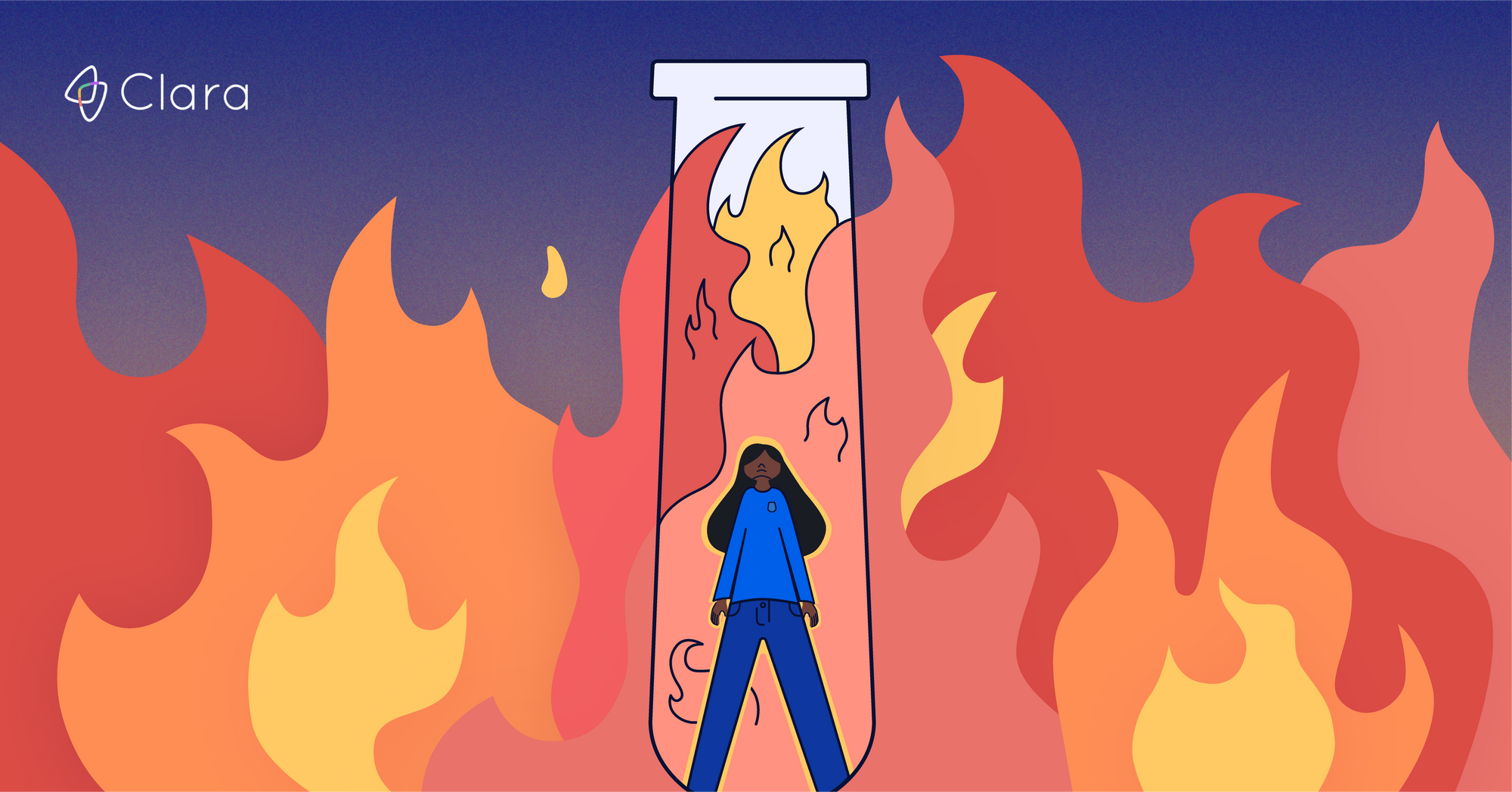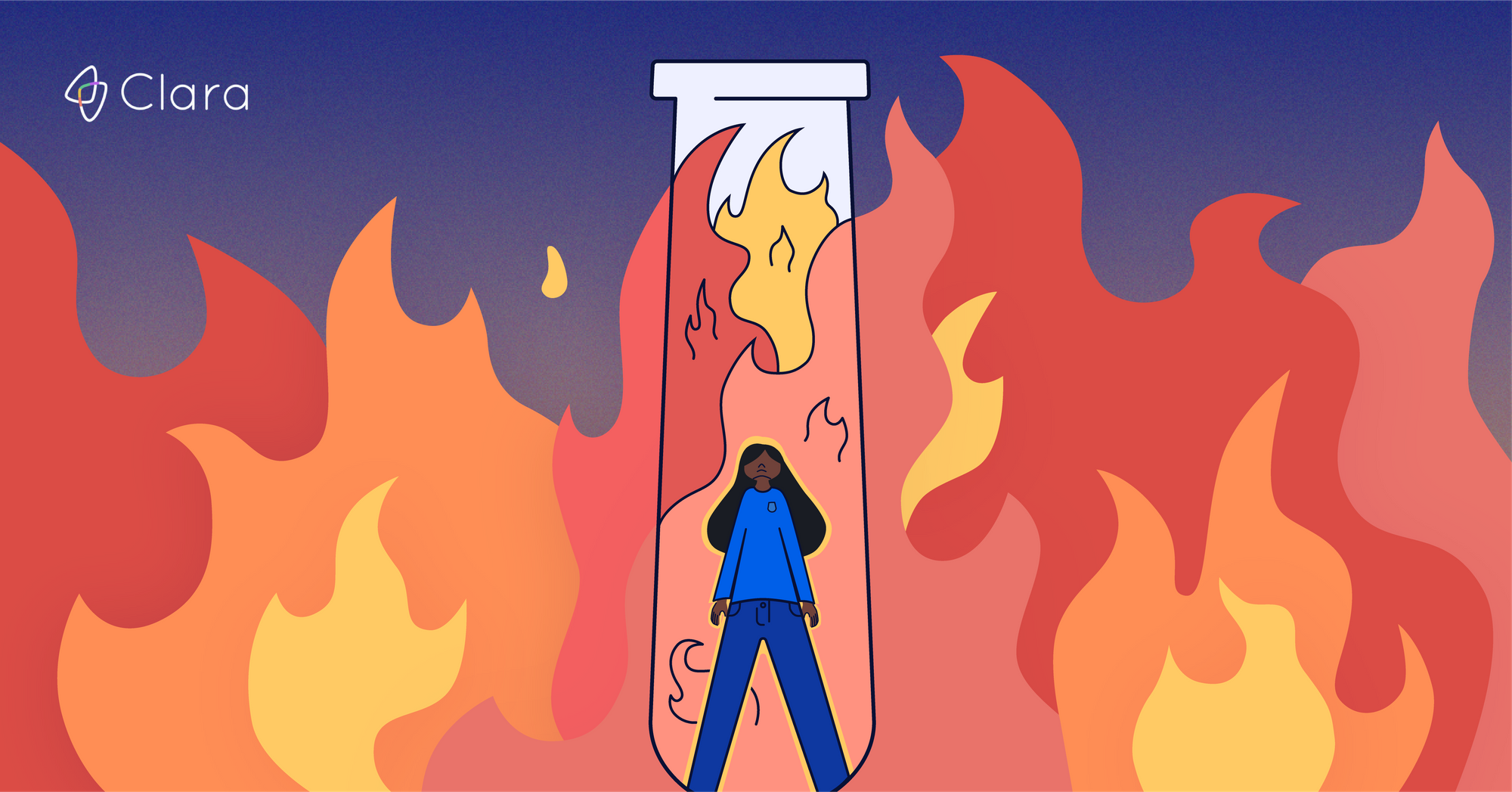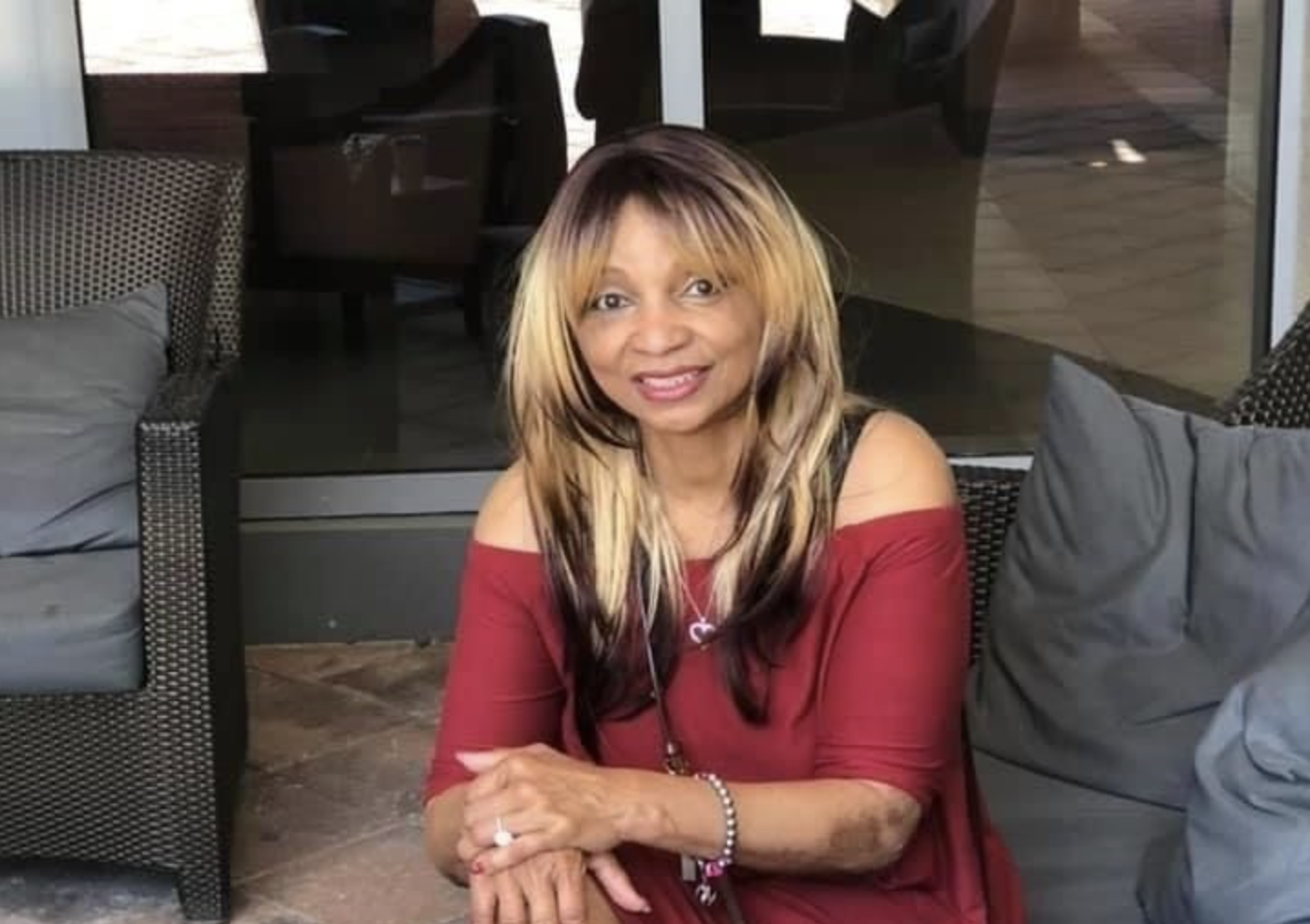Our latest Patients Have Power episode is called "Welcome to thirty." (You can subscribe to the podcast at Apple Podcasts, or listen to it with the media player above).
Below is a transcript of the episode for your reading pleasure!
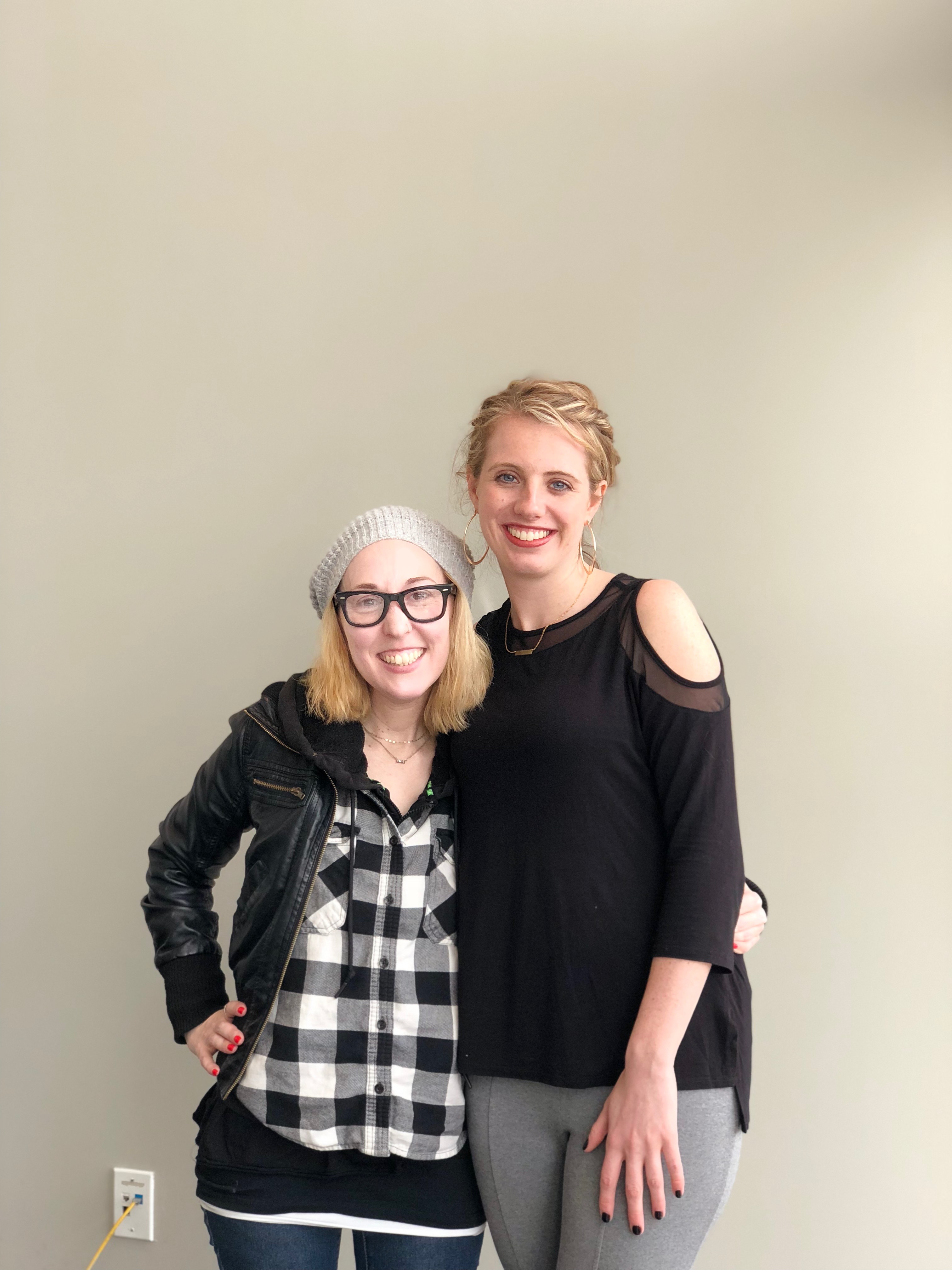
Lilly Stairs: Hi Everyone. Today we have Erika with us in our San Francisco offices, which we're really excited about. I had the opportunity to connect with Erika. You said you found us on Instagram, right?
Erika Trageser: I did.
Lilly Stairs: And it was funny because at the time we connected we were out in Boston, but very shortly after, ended up moving out here. And so it was perfect timing. I was like, “You have to come in to the office so that we can do a podcast!” We were just chatting right before this and she has so many amazing things to share. I don't want to waste anymore time with me talking. I want to flip it right over to you.
Would love for you to just sort of introduce yourself and walk us through your patient journey thus far.
Erika Trageser: Okay. Hi. So I'll try to condense it and make it really short.
Lilly Stairs: Which isn't easy.
Erika Trageser: Which is not easy at all, but my name is Erika, and I want to say, welcome to California!

Lilly Stairs: Thank you!
Erika Trageser: I'm an autoimmune disease and genetic disorder patient. I am in the process of my journey. So, I got diagnosed with mixed connective tissue disorder, stemming from scleroderma, three years ago when I turned 30, towards the end of the year.
Lilly Stairs: Fun birthday present.
Erika Trageser: I know. I was like, welcome to 30, found out what's wrong with you! I thought after I got that initial diagnosis I thought I had all the answers I needed.
But then as I started to progress into treatment options and doctors appointments, I realized there's 10 times more that patients need to educate themselves on. And my symptoms would just progress and get worse. I think that was a combination of physical and emotional toll on my body.
And so finally, in the fall of this year, I was just doing some more research on my conditions, and I stumbled upon an Instagrammer from England, Actively Autoimmune - if you're listening, hi!
Lilly Stairs: Oh, fun!
Erika Trageser: She was posting that she had a rare genetic disease called Ehlers-Danlos syndrome. I would pay attention to her daily posts, because it was just too creepy.
It was literally... I felt like she was robbing my brain of what I was doing. I was constantly in bed with heat, ice. I didn't have energy to do anything. And this has always been my symptoms for years, but as I've turned 30, they've progressed.
So I Googled Ehlers-Danlos, and I started reading about it.

Erika Trageser: And it just felt like a diary novel from birth to present, and what I did was, I made a list of all the symptoms.
And so what Ehlers-Danlos is just so people understand it, it's a rare genetic connective tissue disorder. So it's like a house that's built with really bad foundation. That affects everything from the hair follicles in your head to your toenails - so it affects everything in your body. So pretty much almost every medical issue, episode, symptom, it almost matched type three to a T.
And all the times that I would play pool, or be at parties, and they would say like, “what's going on with your,” ... cause I would be double jointed. And so you used to think at dance class, and in yoga, that was a good thing, but in reality us type three-ers know that that's not a good thing.
Lilly Stairs: Okay, interesting. And so and no doctor had ever mentioned this up to this point?
Erika Trageser: No. And actually I wrote to my primary at the time, and I was convinced that I needed this diagnosis. So I figured out what specialist I needed to go to, which was a geneticist.
And I said I want to be diagnosed with Ehlers-Danlos. And a lot of us autoimmune patients, when we go to a doctor, we try not to unload on them too much. So almost a quarter of the symptoms she didn't even know I had because we were only dealing with the most pressing ones.
Lilly Stairs: Unbelievable. Wow.
Erika Trageser: I know. So then I had to literally write her an essay, this is why I need this appointment. And she's like, "Okay. I only have a couple patients like you, but we'll see".
Erika Trageser: And so I had set the date of my appointment, and then it was three weeks from, it was in December, so it was right before Christmas. And I literally treated this appointment like a research project.

Erika Trageser: So I found out what they do on a genetics appointment. For people that want to know about it, it's a very in depth and detailed appointment, meaning that you go through your whole family tree.
You need to know the medical symptoms of your parents, siblings, and extended family.I'm an only child, but I have a huge extended family with aunts, uncles, cousins, on both sides.
Lilly Stairs: So that's a lot of work on your end to pull all that together.
Erika Trageser: Yes! And my relatives had to field weird questions from me about their medical history from like 1960 something.
Lilly Stairs: So did you do this over Thanksgiving? Over Thanksgiving dinner?
Erika Trageser: I tried to, yes. I tried to make it as brief. And I would actually base my questions on the side of the family. My paternal side dealt with very specified issues and then my maternal side dealt with very specific issues. So I would cater those questions about their health to the list and so forth.
And so that's how, once I compiled the lists, when I went in to the appointment I was able to walk out with a diagnosis. Because there was no denying that it ran in my family.
Lilly Stairs: Oh my gosh. This is truly unbelievable to me because you had to, really, you've completely diagnosed yourself. And you had to make all this out, you told your primary care, but then you still had to do a ton of work to coordinate that appointment, and then to ensure that you got the right diagnosis at that appointment.
You were telling the doctors what was going on with your body.
Erika Trageser: When you go to a genetics appointment, there's a genetics MD, and then there's a genetic counselor. And I felt bad for the counselor because she had to write like a diary novel of my whole family, which was interesting. But yeah, I still am not finished.
That's the kind of unique perspective I can bring to people I guess. I'm still figuring stuff out, because I'm still barely diagnosed. With Ehlers there's 13 subtypes that I found in my research.
Lilly Stairs: Wow. So you're still figuring that out. Do you think you have other, potentially other diseases going on? Do you think it's all connected to the Ehlers?
Erika Trageser: It's pretty much I think the two major components are the Ehlers, which is what I was born with. I dove back into when I was a baby, when I was an infant, toddler - and those pretty much matched up.

Erika Trageser: And then the autoimmune just compounds the issue. But with Ehlers, there's sub-conditions. I have cervical dystonia that I was born with. That's a muscular disease, so that's a sub-condition which I didn't figure out until later. So there's still lots of sub-tests and appointments. I have IBS because of it, chronic migraines, degenerative joint pain, all the time.
Pretty much, I can't move my body in a specific way. So I'm constantly using Bengay patches, heat, ice. I have to completely maneuver my body in a specific way to make sure that I don't sublux anything, or pull anything, because that's what the Ehlers does to hypermobile, just by moving my arm out I could dislocate my muscle.
Lilly Stairs: And, do you have a treatment plan in place right now?
Erika Trageser: I have kind of my own, which I've done...
Lilly Stairs: Of course. It sounds like you've really done everything on your own.
Erika Trageser: But I found an amazing primary on Monday. I really lucked out in that regard, because that's who you need on your team. You need to have a good relationship with your primary - if you don't, then everything else is gonna be a giant headache.
So with her, the minute she heard what I had, she didn't give me a blank stare, like I was speaking a foreign language. She knew exactly what I was talking about, which most doctors do not.
And we just started writing out referrals that I needed, and it's almost for every body part - my eyes, my stomach, genetics, rheumatology. I mean I probably have five or seven different referrals that I have to dig up and make appointments for.
Lilly Stairs: I want to get the name of that primary care by the way, don't let me forget that. But so you are now, you've gotta get set up all these appointments with these specialists are you being treated at all right now? Or are you waiting to get treatment?
Erika Trageser: As far as immunotherapy goes, for my autoimmune, I tried it initially when I got diagnosed. The problem with the scleroderma community is we're kind of a unique mold, so there's not very many treatment options.
The sister component to it, lupus, that has way more of a knowledge branch. So what they try to do with mixed connective tissue sometimes is they'll treat it like lupus.
But you can't do that because it's not the same thing.
Lilly Stairs: Not the same thing, right.
Erika Trageser: So I tried an immunotherapy drug for like, four to five months, and it just made me sick as a dog. So I'm waiting to explore new options, and I'll share those with people as I go through it.
Lilly Stairs: Great, great. Okay. I know that through all of this you've been scheduling all these appointments, you've been dealing with being chronically ill, managing multiple chronic illnesses, but you're working.

Erika Trageser: I am.
Lilly Stairs: You're working full time?
Erika Trageser: Almost full time. I'm also really lucky that I have really understanding employers. I explained to them, and they've watched me go through the process since I was 25 of just getting iller and iller and iller.
Lilly Stairs: So when you started with them, did you express that you had a diagnosis? Was it at the point where you're chronic illness wasn't really affecting you?
Erika Trageser: No, I just said that I had migraines. And I was really hesitant on sharing anything until I had it like officially stamped like "this is what I have."
Because I notice some people don't take it as seriously or it's just, I just wanted to present more concrete evidence you know so we can kind of work around it.
Lilly Stairs: Sure. So that was when you were first hired on. You shared that you did have chronic migraines but didn't really share beyond that?
Erika Trageser: Yeah, because dealing with chronic fatigue and all the other, that's a little more, I think people can relate to this, it's kind of an embarrassing thing. Because with fatigue, sometimes it can make you look a little disheveled, it can make you constantly chasing after appointments like you know you're late.
So it's something that you can't put your finger on, but you don't want to say it.
Lilly Stairs: And it's hard because everybody in the world gets tired. But, I think that it's really difficult for a person who doesn't have a chronic illness to understand what fatigue with a chronic illness is, because it's a totally different ballgame than your average person's fatigue or sleepiness, right?
And so for you to say oh yeah I have chronic fatigue, a lot of people would just be like "Oh well you know, so do I." And it's like "No it's a little different."

Erika Trageser: I was really lucky to where also the industry that I'm in that you can kind of build your own schedule. And so what I've done is, for 2017, I needed to get to the bottom of what was going on. So I kind of cut back my schedule a little bit.
But since I have the Ehlers diagnosis, I can now know that it's not in my head. I got chronically depressed, it's something that's not gonna go away. It's genetic so I'm gonna have it until whenever.
Erika Trageser: So I have to work around it. What I've done is, I've made schedules based on fatigue.
So knowing that on a Monday, I'm probably gonna be exhausted from the weekend - so I need to go in a little bit later, but then X amount of days I'll be okay. But then, just knowing your limits, really paying attention to your body each and every day, how it's feeling at the beginning of your work day, at the end of your work day, and what you've done for maintenance in between that.
Lilly Stairs: And your work has been very responsive to this, they've been flexible.
Erika Trageser: Oh yeah - they even noticed a difference, because when people are with you every day, minus your partner, your family, they know you really well so they can tell when you're in pain, they can tell when you're tired, and it reflects in your work performance.
I take pride in working. I think it's good for people with chronic illnesses not to give up on that all together if they can, because every situation is different. And I'm the type of person where I like going to work, I like the before and after, it's just intellectually stimulating and I think that's so important when you're sick so you have something else to distract your brain.
Lilly Stairs: Yeah, absolutely. And again we were chatting before and you've managed so much, with now this self diagnosis. You're working amidst all this.
Lilly Stairs: You're running and making all these specialist appointments, and you have a personal life too on top of that right?
Erika Trageser: I do, I do. It's a little bit of ... I joke that it's a grandma personal life, but I've been lucky to have a long term partner that's stood by my side since I was 21, and we're still together. So people call us unofficially married anyways, and I think the day we do tie the knot everyone will be really excited.
I just can't even put into words what he's done for me really, because he's taken the anxiety of being misunderstood and just saying, "it's okay I accept you anyways."
Because I think sometimes when you're young and you're trying to figure out what's wrong with you illness-wise, some people can be a little hesitant to enter a relationship. So you have to find that safe person that accepts you.
When you're sick, when you're well, when you're on prednisone and you're screaming like a mad person, they will still tell you they love you the next day.
Lilly Stairs: With your chipmunk cheeks.

Erika Trageser: Exactly so, I was very lucky in that way. And he's had to go with me to hospitals, he's changed my puke bowls, he's held my hair while I've thrown up, he's helped me when I've almost fainted.
All the times I've cried from the doctors.
Lilly Stairs: And how, he sounds amazing, where can I find one of those?
Erika Trageser: Well he doesn't have siblings, but if we can clone him in a lab I'll definitely see if we can for sure.
Lilly Stairs: Yes, please keep us posted. So how has it affected your relationship? It sounds like he's really been there for you but what elements, if any, of your relationship has it impacted?
Erika Trageser: I think we've been really good at communication. We've always said communication is key. And so I try, and I'm still working on it, because everyone knows when you're in a long term relationship it's constant work. If you don't work at it, then it's not gonna work.
So I try and make efforts as a partner to not bombard him too much with my illness, and only at appropriate times when he's been able to decompress.
Because being a caretaker for someone is not easy.
Lilly Stairs: Right, it's not.
Erika Trageser: He didn't sign up for that, so I really try to always put myself in his shoes and what he's having to deal with, and he tries to do the same for me. And it's just communicating.
For instance, the past 48 hours, I've had insomnia induced fatigue. So I have to be communicative and say, "look, my patience is probably gonna be really short, because I haven't gotten a whole lot of sleep. So if I snap at you, or just little things, it's like a warning."
Just letting your partner know is so helpful, because it can save a lot of arguments.
Lilly Stairs: And have you ever felt guilty?
Erika Trageser: Oh all the time.
Lilly Stairs: Yeah?
Erika Trageser: All the time. Guilt, and I joke - because I'm Catholic too - I joke that it's like Catholic guilt. I constantly feel guilty about what it's put on him, what it's put on my family.
Because the biggest thing illnesses do too, when you're still alive and dealing with it, is it robs you of time. And that's the grieving process that you have to work through.
Because you miss anniversaries, birthdays, holidays, because that's what it does. And that's why it makes you, it gives you a fire, because you want to feel alive every day you don't want to just drudge through life.
Lilly Stairs: Yeah. And we were also talking a little bit before this about how - and it seems like you have a really great handle on your relationship, you've found a way to make it work.
But of course, I mean that feeling of guilt, I think there are so many advocates who, and patients, who deal with this on a day to day basis - where they just carry this guilt. And it's really hard to let go of and it needs to be something that you do internally, that you find a way to do internally.
But it sounds like you're doing a really great job managing all of that?
Erika Trageser: I hope so.
Lilly Stairs: But one thing that we were discussing is, that because of some of your recent diagnosis, you've learned that that could impact a family, in the future.
Erika Trageser: Pretty much when I was a kid, I had to watch my mom go through a really horrible miscarriage, and when I was about five or six. So from that point on, I kind of instinctually knew as a child, I'm like, "am I gonna be able to have a family one day? Is that gonna be a problem for me?"
And as I got older I wanted to have all my ducks in a row, and the minute I got this diagnosis - it's more of a conscious decision - I probably still could technically become pregnant.

Erika Trageser: But it's an emotional decision of I'd want to be there for my child. I don't want to constantly be chronically ill, and having to balance motherhood, and also just the medical toll it would put on my body and all the complications.
And that's another important thing to navigate too, when you're in a relationship - are you guys on the same page? Because if you're not, that's gonna cause a lot of problems. And that's what I meant by accepting all of you, because he loves me with or without if I can give him children.
Lilly Stairs: Yeah. That and you discussed that you're still figuring out marriage too right? You're still figuring out if and when you wanna do that.
Erika Trageser: Yeah it's a constant joke with all of our extended friends and things like that. Because we've been together, this year will be 12 years.
Lilly Stairs: Wow congrats! That's awesome. That's an accomplishment in and of itself.
Erika Trageser: Yes, I would hope so. And now that we're in our 30s it's like, oh my god, I've known you for so long. I would like to be a happy bride - I would not like to be a disheveled bride.
So I wanna get a handle completely on what's going on in my health before I tackle becoming a wife.
Erika Trageser: I think right now we're on the same page with that. I think the biggest expense when you're an autoimmune patient and an Ehlers patient, is all the extra stuff that you need to do. Following a special diet, the shoes I'm wearing, the special Nike's.
I went to a running store and I had to get my feet specially fitted to know what's going on with my block so and they saw that my ankles were constantly rolling so I can't just go out and buy a $40 pair of shoes because I'm gonna be in constant pain all the time.
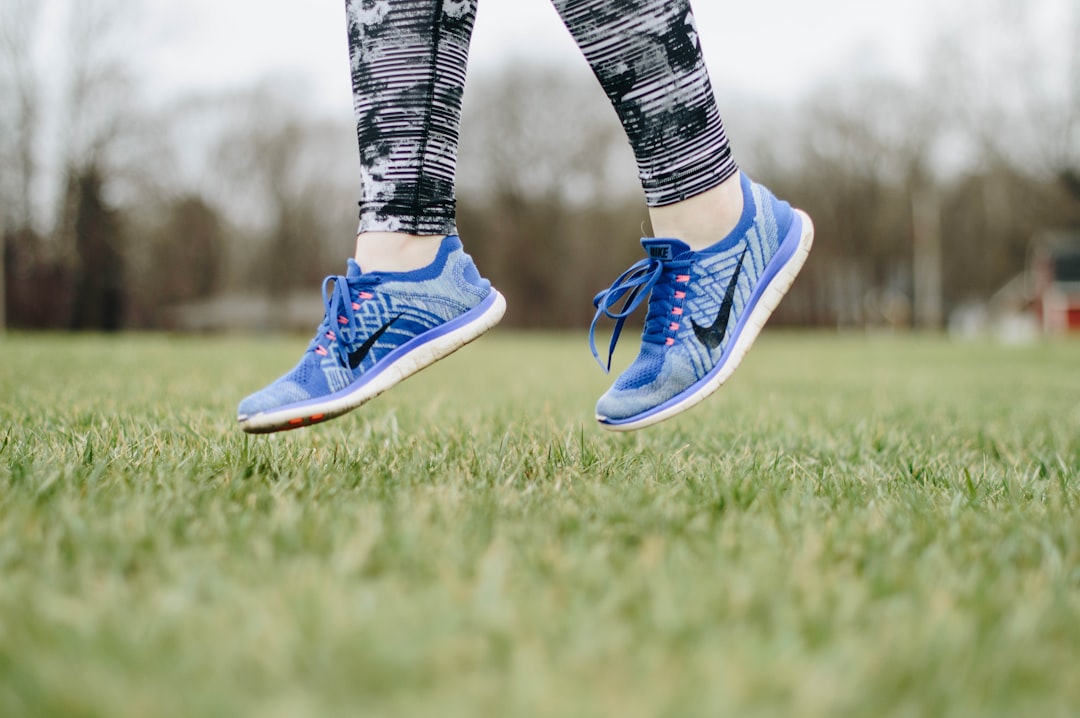
Erika Trageser: So your expenses kind of rise but luckily being a Capricorn, I'm really OCD with budgeting and planning. So I try to see what the most pressing needs are to kind of know what I can push back.
Lilly Stairs: Awesome. And follow a specific diet that you found?
Erika Trageser: I do. Since I had my colonoscopy that was like a week before my birthday. And then on my birthday, I had two good hours that day, and then the rest of it I was sick as a dog.
And so, after that I just made the decision.
It's still fairly new for me, but I'm following gluten free. I would say probably 70% of the time vegan, low sodium, which I've found is super helpful in anyone dealing with inflammation, because you don't want to be puffy. And then also just making sure if I do eat meat that there's no antibiotics or hormones in the meat. So it's kind of my own little tweakage. And then I'm low dairy so if I am craving dairy, I'll get a dairy substitute.
Lilly Stairs: Yeah, and it's tough. It is tough to do that. We've talked about this a little.
I do gluten, dairy, soy, free right now. And even walking into Whole Foods, there are a lot of options.
But there are certain things that I still can't even buy. I have to do so much from scratch. I will pick up some of those pre-made meals and you'll be like "oh okay, great, it says gluten free on the front, but then you look on the back and it has soy, or it has dairy".
And I'm just like come on can't you have one thing that tastes good?
Erika Trageser: Preach it. Preach it. If you go to the bread aisle, because it's like c'mon I can't give up bread. It was so hilarious like a week ago I just kept circling the bread for like 20 minutes I'm like, "what do I get?"
Because sourdough is still, sometimes, if you get the right kind, is still gluten friendly, so you can have that.

Lilly Stairs: Is it?
Erika Trageser: Some kinds, yes.
Lilly Stairs: What? Well this has just made my Friday.
Erika Trageser: Well if you go there's a specific place that sells allergy free sourdough.
Lilly Stairs: Oh gosh. I gotta go look into that as soon as we finish recording.
Erika Trageser: I'll give you the grocery store in the Castro, it's amazing. That's kind of also been my fun little thing too. It's like if my illnesses are gonna take almost all the joy out of life, then I'm gonna try to have fun with what I can. So I'm gonna constantly tell myself little lies to eat the food that I need to eat.
Because if I don't, then I'm gonna be sick as a dog. And I know this is brutal honesty - but if that's the case, then I have no one to blame but myself, because I'm not taking the steps that I need to take as a patient. Because when I go in to the doctors, when I yell at them, and I argue with them, I wanna at least have done everything tenable that I should have done.
Lilly Stairs: Well and I appreciate that and it can be very difficult because, to adapt to this kind of diet. In any setting, especially you think out in California there are a lot of accommodation...
Erika Trageser: Oh it's awful.
Lilly Stairs: But, and there are some, but I mean, I can't even imagine being somewhere else, because California does a little bit but most places don't do much at all.
Erika Trageser: They don't. That's where I'm really lucky to have been brought up here, because my parents moved here from the East Coast. We didn't have any family here, but the one thing I've always joked is I'm like the California hippy in the family.

Erika Trageser: But, I'll take that because if it means that I'm following a much better diet than I need to. I mean sure, everyone in California is not health conscious all the time, you'll see us digging into a taco truck or Popeye's just like everybody else.
But since I have gotten my IBS diagnosis from the colonoscopy, I don't take the risk because I get the PTSD of all my flares, all my cry faces, I'm like just ...
Lilly Stairs: And it's hard, and it's hard, because I haven't personally seen a whole lot of direction from physicians around dietary changes and that's really frustrating.
Erika Trageser: Oh it's ridiculous.
Lilly Stairs: That's a piece, that's certainly a piece. I'm a firm believer in integrative medicine. So I think it's important to have medicine, but I also think its important to make sure that you're trying to live a healthy lifestyle, right? And doing that and healthy lifestyle meaning what's right for you.
Because gluten free isn't right for some people. Vegan's not right for some people. But you gotta figure out what's best for you and so trying to select that.
But doctors I have not found to be super helpful in that arena.
Erika Trageser: You want to know the one place that they are doing this research? Is in Europe. Because there's a huge Ehlers-Danlos society in England, and they're the only physicians that I've seen that are actually doing clinical research on what the diet does to EDS patients. And I brought that up to an allergist, and I said "google it."
I said:
"If you're gonna mock me for these allergy tests to see why I'm reacting to foods, google EDS and hypermobile patients and diet and almost every lecturer, doctor, will say that pediatric patients are suffering from all the same symptoms."
Lilly Stairs: Interesting. And we've seen - I will say that through working at Clara, I've started to see that there are a lot of clinical trials, studies that are coming up. They're in the pipeline around diet, and especially as it correlates to autoimmune diseases.
So my hope is that we do continue to see more of this. Fingers crossed in the next five, 10 years we start to see a revolution in this space. Because ultimately, I just want more options for patients right?
It's like because if somebody wants to do diet and that's right for you, that's perfect, but if it's not, then take medicine, or do both. We want to just give them as many options as they can possibly get.
We want to put the power into the hands of the patients right?
Erika Trageser: Well yeah, because what they'll do is if you don't, you'll have an endoscopy. And if you don't test like classic textbook celiac, they'll say, “oh what are you following a gluten free diet for?”
And I'll be like, "So I don't look like Pillsbury the Doughboy when I wake up in the morning. Because I don't want to have my stomach look like I'm four months pregnant. I don't want people to start asking me am I expecting, because no, that's what happens."

Erika Trageser: Even nutritionists - because think about it - if you don't have the proper diagnosis, they're not gonna be able to give you the proper nutritional advice. So it's all a domino effect.
That's why patients should just literally research what your symptoms are, come to a collective conclusion, and that's what social media is for. There's so many people that are blogging and taking pictures of what they're eating, how they're finding the food, and you can find it all on social media and Instagram and you can get it for free.
You don't even have to go to a doctor's appointment.
Lilly Stairs: It's all there. It's all there.
Lilly Stairs: And so this has been such a fascinating conversation. We've covered so many topics in such a short amount of time I really can't even believe it. But I wanted to close the podcast by asking you what does patients have power mean to you?
Erika Trageser: It literally means that we have the power to educate other patients about their conditions, or about stuff that they don't know about, and just literally taking your health into your own hands because no one's gonna care about that more than you.
And the biggest thing I can say is preventative maintenance. Treat your body like a car and a temple, and if you notice what happens to automobiles, when you don't put in the work and the effort, they tend to run down so that's how you have to treat your body.
Lilly Stairs: Great analogy.
Erika Trageser: So the one thing I'd recommend to people, even if they think they're healthy: go do a blood panel anyways because it will give you an outline of what's going on in your body, and what vitamins to take, what foods to eat.
So I think everyone should do that regardless if they're sick or not. So I hope that patients that are listening have their families listen, so they can be more empathetic to all the stuff they have to go through.
Lilly Stairs: Well what a beautiful way to end the podcast. Thank you so much for being here and spending time with us. We so appreciate your insight.
Erika Trageser: Thank you. It was so awesome meeting you!
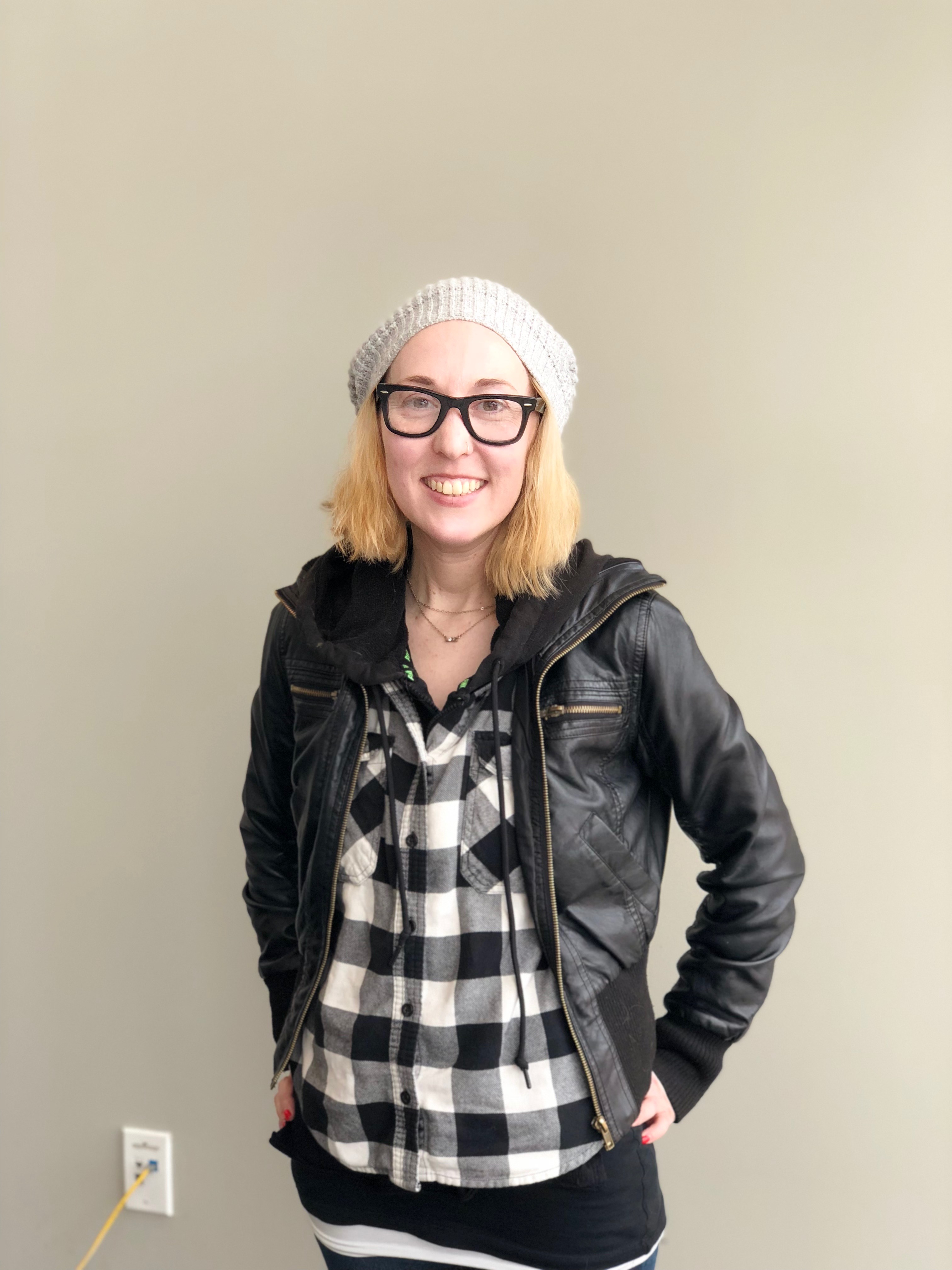
Follow Erika's journey on her twitter @EEEzzyE115 and instagram!


